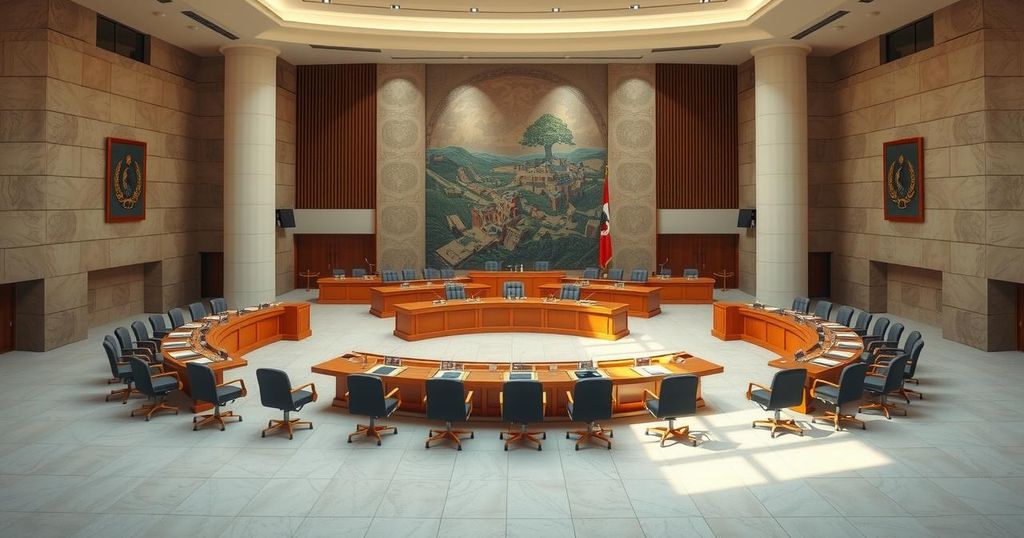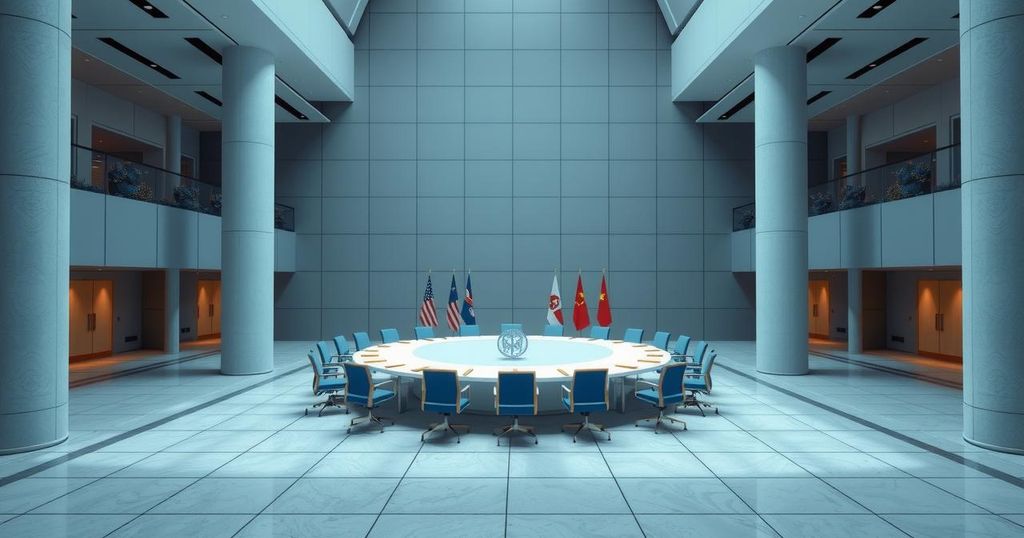The U.S. administration is considering relocating Palestinian residents of Gaza to regions including Somaliland, Puntland, and Morocco. This plan follows President Trump’s vision of transforming Gaza into a revitalized area. The proposed move has met with widespread rejection from Palestinian leadership and regional powers, raising significant concerns regarding international law and human rights.
The United States administration is reportedly exploring plans to resettle Palestinian residents of Gaza to regions such as Somaliland, Puntland, and Morocco, as cited by Israeli TV Channel N12. This initiative aligns with President Donald Trump’s recent comments regarding transforming Gaza into a revitalized area. The proposal involves the resettlement of approximately two million Gazans while advocating for significant reconstruction efforts throughout the enclave under U.S. supervision.
During a meeting with Israeli Prime Minister Benjamin Netanyahu, President Trump referred to Gaza as a “demolition site” and emphasized the necessity for a comprehensive restructuring of the region. Although the proposal focuses on rebuilding Gaza and is not centered around territorial annexation, it has faced significant backlash, particularly within the Middle East, revealing the contentious nature of such geopolitical maneuvers.
The potential relocation of Gaza’s populace is reportedly motivated by a desire to improve infrastructure and attract foreign investment, with aspirational visions of transforming Gaza into the “Riviera of the Middle East.” Support has emerged from regions confronting their geopolitical challenges, such as Somaliland, Puntland, and Morocco, all of which are perceived as potential hosts for the displaced Gazans, seeking economic assistance and international recognition.
However, strong opposition has surfaced from Palestinian leaders, who have condemned the proposal as a violation of international law and an infringement upon Palestinian sovereignty. Hatem Azzam, a Gaza resident, expressed indignation at the idea, stating, “This is our home, and we will not be forced out,” emphasizing the deep-rooted connection to their land.
The topic at hand concerns the U.S. government’s proposed initiative to relocate Palestinian residents from Gaza to other regions, an endeavor defined by numerous international complexities. Historically, Gaza has been a site of tension between Israel and Palestinian factions, leading to humanitarian crises. The involvement of external powers like the U.S. in proposed restructuring signifies ongoing geopolitical interests that seek to influence not only Palestinian displacement but also regional stability and recognition. The backdrop of this plan is set against President Trump’s comments that suggest a sweeping transformation of Gaza into a more economically viable area, mirroring similar themes of reconstruction and national redemption historically proposed in various foreign policy initiatives. Parallel geopolitical dynamics involving countries such as Somaliland, Puntland, and Morocco further add layers to the complexities of regional relationships, financing, and legitimacy.
In summary, the U.S. administration’s proposal to relocate Gazans to countries like Somaliland and Morocco has garnered considerable attention and backlash. Amidst significant opposition from Palestinian leadership, as well as regional powers committed to a two-state solution, the plan highlights the intricate balance between geopolitical aspirations and the rights of displaced populations. The situation underscores the ongoing complexity surrounding the Israeli-Palestinian conflict and poses questions about international law, sovereignty, and humanitarian responsibilities.
Original Source: www.defensemirror.com




